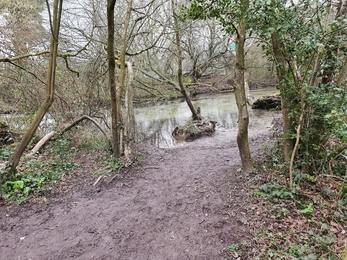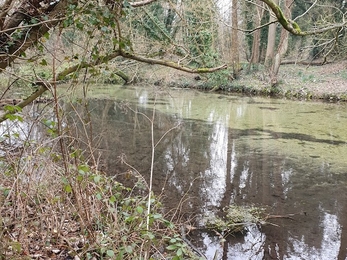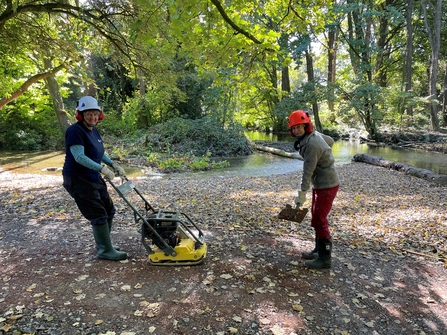In the village of Ashe, near Basingstoke, an unassuming pool sits in a secluded field. But to those in the know, this is a very exciting place indeed: the source of the famous River Test. About a mile down the road, in neighbouring Overton, the iconic waterway takes a more recognisable form. It can be spotted at many points across the village, and perhaps the most popular is a footpath known as Flashetts.
If you’ve ever walked along Flashetts, you’ll know what a special place it is to visit. It snakes alongside the chalk stream, making it a great place to enjoy a globally rare habitat type. Dragonflies and kingfishers are frequent visitors. At the western end of the footpath, the river and wet woodland have been designated a Site of Special Scientific Interest, earning them further legal protections.
Unfortunately, this local gem had deteriorated in recent years. Significant bank erosion was threatening the stream's wildlife and destabilising the bankside trees. Without intervention, this popular walking would have become increasingly dangerous and devoid of life. This was brought our attention by both residents and the landowners of the Flashetts & Quidhampton Mill Conservation Area.
Pictured below (click to expand): The Upper Test and Flashetts footpath before the restoration work. The bank erosion and accumulated sediment are visible.








